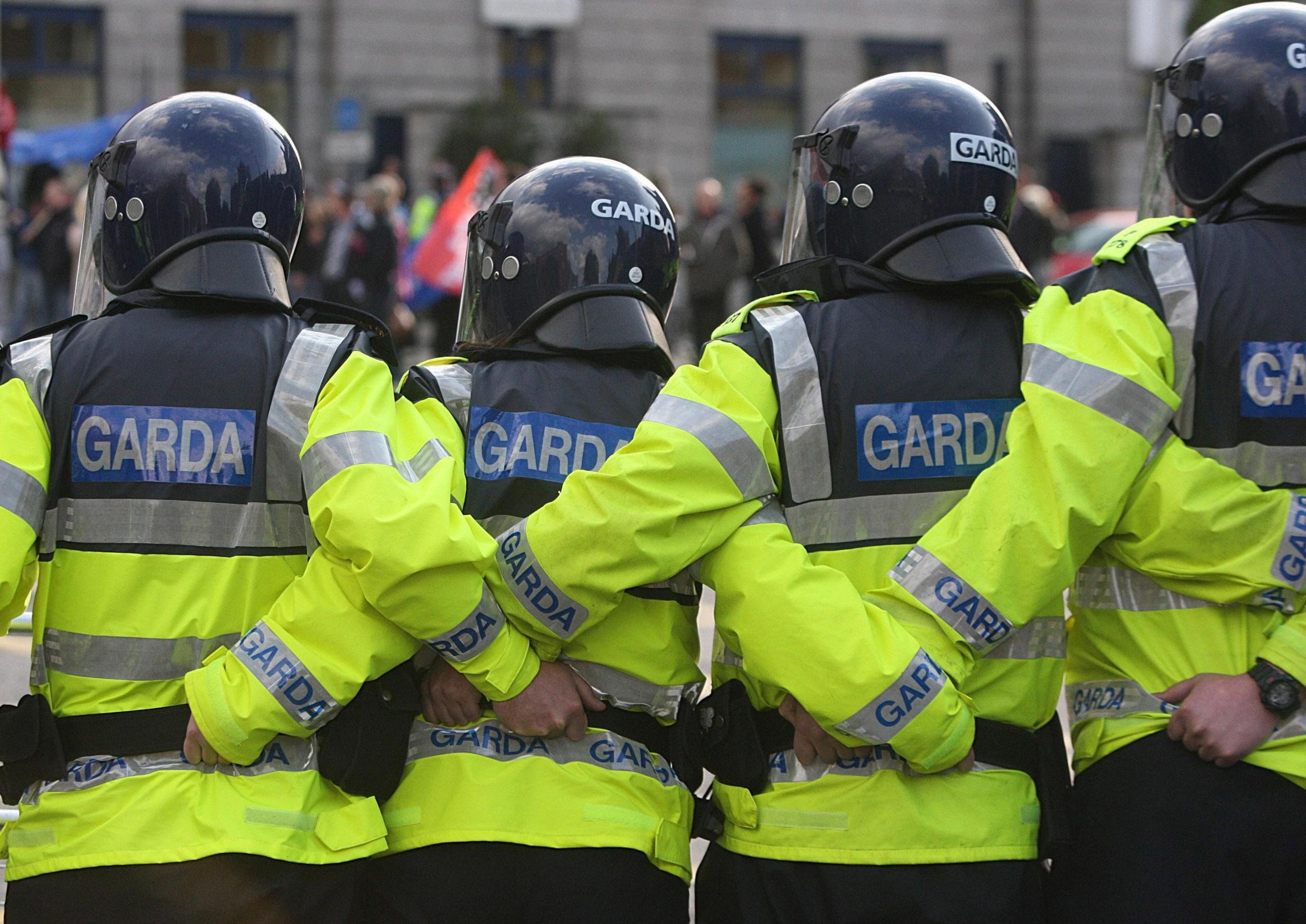Irish police begin protest over garda rota row

At a glance
Irish police officers begin first of five protests over shift patterns
Drew Harris has led An Garda Síochána (Irish police force) for five years
The Belfast-born Commisioner was given a vote of no confidence after decision to change garda rotas last month
The Westmanstown roster is due to start next month
- Published
Gardaí (Irish police) have begun the first of five protests over a decision from Garda Commissioner Drew Harris to change work rotas.
The body presenting rank and file officers, the Garda Representatives Association (GRA) balloted its members over industrial action last month.
The association has been in dispute with Mr Harris over rota changes and other working conditions.
Officers are protesting over the reintroduction of the Westmanstown roster prior to the start of talks between all sides.
Gardaí had voted to withdraw voluntary overtime on all five Tuesdays in October and strike on 10 November if the current dispute is not resolved.
Mr Harris has said he is ready to begin talks on the roster issues and the three other garda associations are prepared to enter talks.
Voluntary overtime is used on checkpoints and patrols, to bring units up to strength, to staff stations and to increase visibility at a time when gardaí numbers are in decline.
It is also used to cover the Dáil (lower house of Irish Parliament) and police special events, as well as in major investigations and for court appearances.

Belfast-born Drew Harris has led the Republic of Ireland's police force for five years
The Westmanstown roster announced by Mr Harris would revert back to pre-pandemic rotas.
Thise would mean gardaí return to six-day working weeks, followed by four days off.
This has proved unpopular with rank and file gardaí, many of whom want to keep Covid-era rotas, where shifts are longer but they work four days on and four off.
Last year, the GRA said the six-day week would mean 47 additional days on duty per year for some members, increasing commuting and childcare costs.
After months of negotiations with the GRA, Mr Harris said in September that he was proceeding with the six-day rota, despite the objections.
Speaking to Irish broadcaster RTÉ on Monday, GRA president Brendan O'Connor said people would see a "slower response" and may see "less visibility" of garda in certain areas.
"Our members are simply saying - the service is depleted because of recruitment and retention.
"The only reason it's functioning is because of our flexibility and commitment to go beyond the call of duty.
"We want to sit down, we want to solve this problem, we never wanted to be in this position."
Mr Harris said he and garda management were available for intensive talks.
He is meeting each of the garda associations separately this week.
As gardaí protest, barristers in Ireland who work in criminal law will strike for the first time on Tuesday, in a dispute over government cuts to pay.
Barristers will protest outside courthouses across the country between 10:00 and 13:00, including at the Criminal Courts of Justice in Dublin.
The barristers will be joined by criminal defence solicitors, who are withdrawing their services due to a failure to reinstate cuts to their fees.
Analysis: 'The Drew flu?'
By BBC News NI Dublin reporter Aoife Moore
They’re calling it “The Drew Flu”.
Reminiscent of the “Blue Flu” withdrawal of garda labour in 1998, officers are refusing overtime shifts for five days, and sending a stark message to their commander.
If Mr Harris thought the recent vote of no confidence in his leadership was a “bitter blow”, this new staffing issue will do little to remedy the hurt.
A battle of wills is now being undertaken, and Mr Harris says he’s willing to talk.
With Budget Day on the horizon and with the possibility of intense protests outside Dáil Éireann being understaffed, it’s likely it won’t be long before politicians, who were recently intimidated outside their place of work, begin calling on Justice Minister Helen McEntee to take a stronger hand in the crisis.
It is the first such crisis Mr Harris has weathered in his tenure as commissioner which began in 2018, however, as the justice minister also receives intense criticism about her performance in her role, it may mean further pressure on the Belfast man to take decisive action.
Related topics
- Published27 September 2023
